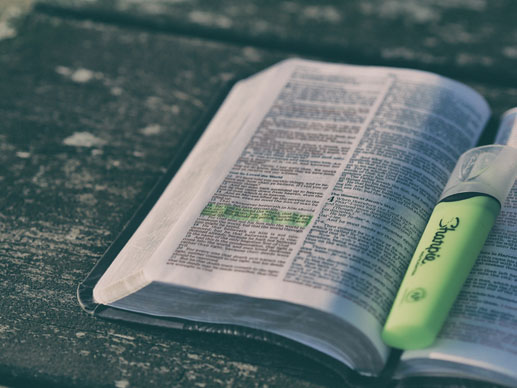Life In Christ Bible Study
November 6, 2021
Freedom From Human Regulations Through Life With Christ
Colossians 2:6-23
Presented by Michael Webb
Open It
- What good advice have you never forgotten?
- *In what ways would you characterize yourself as permissive, and in what ways would you characterize yourself as strict?
Explore It
- How did Paul tell the Colossians to continue in Christ? (2:6-7)
- What false teaching was Paul concerned about? (2:8)
- What did Paul affirm about Christ? How? (2:9-10)
- *What did God give the Colossian believers? (2:10)
- Why do Gentile Christians have no need to conform to Jewish rules and regulations? (2:11-12)
- How did the Cross cancel the written code? (2:13-14)
- From what did Christ deliver us? How? (2:15-17)
- *How did Paul encourage the Colossians to practice their freedom in Christ? (2:16)
- How did Christ fulfill what the Old Testament foreshadowed? (2:17)
- Whom did Paul accuse of trying to rob believers of their spiritual rewards? (2:18)
- *What were the characteristics of the false teachers? (2:18-19)
- How did Paul challenge the legalism that had infected the church? (2:20-21)
- What are the failings of human commands and teachings? (2:20-23)
Get It
- *What “additions” to faith in Christ have you encountered from teachers in your Christian community?
- How are you affected by popular religious rules floating around today?
- What does “fullness in Christ” mean to you?
- *Paul’s advice kept the Colossians growing in their faith; what Christian leaders have helped you stay on track spiritually?
- How deep are the roots of your faith?
Apply It
- *This week, how can you best exercise the freedom you have in Christ?
- How can you help a Christian friend get rid of his or her false ideas about Christ?
Bible Scripture:
Colossians 2:6-23 (NKJV)
6 As you have therefore received Christ Jesus the Lord, so walk in Him,
7 rooted and built up in Him and established in the faith, as you have been taught, abounding in it with thanksgiving.
8 Beware lest anyone cheat you through philosophy and empty deceit, according to the tradition of men, according to the basic principles of the world, and not according to Christ.
9 For in Him dwells all the fullness of the Godhead bodily;
10 and you are complete in Him, who is the head of all principality and power.
11 In Him you were also circumcised with the circumcision made without hands, by putting off the body of the sins of the flesh, by the circumcision of Christ,
12 buried with Him in baptism, in which you also were raised with Him through faith in the working of God, who raised Him from the dead.
13 And you, being dead in your trespasses and the uncircumcision of your flesh, He has made alive together with Him, having forgiven you all trespasses,
14 having wiped out the handwriting of requirements that was against us, which was contrary to us. And He has taken it out of the way, having nailed it to the cross.
15 Having disarmed principalities and powers, He made a public spectacle of them, triumphing over them in it.
16 So let no one judge you in food or in drink, or regarding a festival or a new moon or sabbaths,
17 which are a shadow of things to come, but the substance is of Christ.
18 Let no one cheat you of your reward, taking delight in false humility and worship of angels, intruding into those things which he has not seen, vainly puffed up by his fleshly mind,
19 and not holding fast to the Head, from whom all the body, nourished and knit together by joints and ligaments, grows with the increase that is from God.
20 Therefore, if you died with Christ from the basic principles of the world, why, as though living in the world, do you subject yourselves to regulations–
21 “Do not touch, do not taste, do not handle,”
22 which all concern things which perish with the using–according to the commandments and doctrines of men?
23 These things indeed have an appearance of wisdom in self-imposed religion, false humility, and neglect of the body, but are of no value against the indulgence of the flesh.










